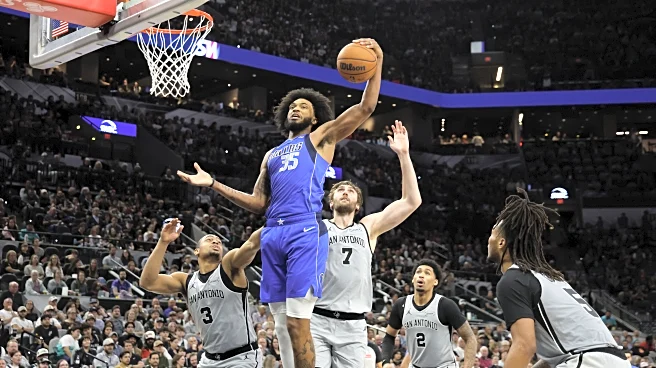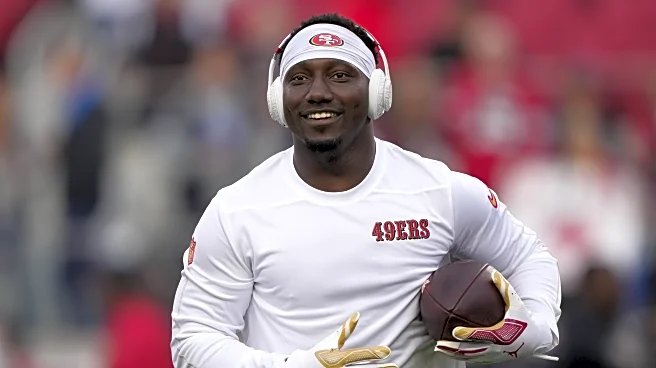What's Happening?
The Atlanta Falcons benched starting quarterback Michael Penix Jr. in favor of Kirk Cousins during a 30-0 loss to the Carolina Panthers. Penix, who became the starter late last season, struggled with two interceptions and no touchdowns, prompting head coach Raheem Morris to make the switch late in the fourth quarter. Despite Cousins' brief appearance, Morris confirmed that Penix will remain the starter moving forward. The Falcons, now 1-2 for the season, have faced challenges with their quarterback lineup, as Cousins had previously fallen down the depth chart after joining the team in free agency.
Why It's Important?
The decision to bench Michael Penix Jr. highlights the ongoing quarterback challenges faced by the Atlanta Falcons. With Kirk Cousins' return to the field, albeit temporarily, the team is grappling with finding stability in their offensive lineup. This move could impact the Falcons' strategy and performance in upcoming games, as they seek to improve their record. Additionally, the situation underscores the pressure on NFL teams to make quick adjustments in response to player performance, which can affect team morale and fan support.
What's Next?
Head coach Raheem Morris has stated that Michael Penix Jr. will continue as the starting quarterback, despite the recent benching. The Falcons will need to address their offensive struggles and work on improving Penix's performance to avoid further losses. The team may also consider adjustments to their play strategies and support systems for Penix to enhance his effectiveness on the field. As the season progresses, the Falcons will be under scrutiny to demonstrate improvement and competitiveness in the league.
Beyond the Headlines
The benching of Michael Penix Jr. raises questions about the dynamics of quarterback management in the NFL. The decision reflects the high-stakes environment where performance dictates player roles, and teams must balance short-term results with long-term development. This event may lead to discussions about the pressures faced by young quarterbacks and the importance of providing them with adequate support and opportunities to grow within their roles.









